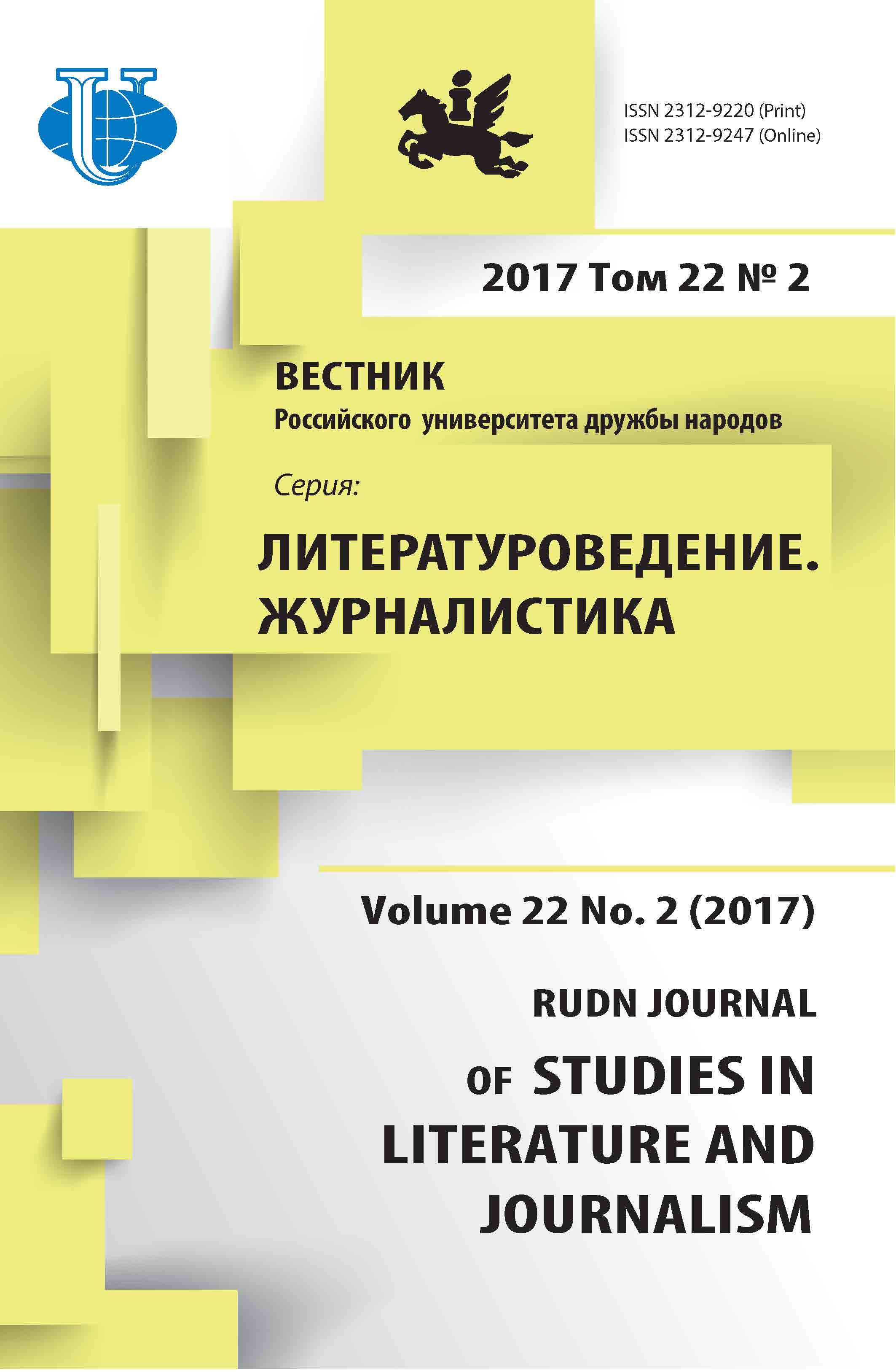SOME FEATURES OF ORIGIN AND DEVELOPMENT OF LOCAL NEWSPAPER IN RUSSIA
- Authors: Rodionov TS1
-
Affiliations:
- Peoples’ Friendship University of Russia
- Issue: Vol 22, No 2 (2017)
- Pages: 340-351
- Section: JOURNALISM
- URL: https://journals.rudn.ru/literary-criticism/article/view/16754
- DOI: https://doi.org/10.22363/2312-9220-2017-22-2-340-351
- ID: 16754
Cite item
Full Text
Abstract
This paper shows the author’s results in studying the emergence and development of city newspapers and features of urban readership’s priorities in Russia in the 19th - beginning of the 20th century. Origin of Russian city dailies and weeklies nearly coincided with the end of formation of city estates, which took place in the first third of the 19th century. Social life democratizing of the end of the 1850s - the beginning of the 1860s served as catalyst of acceleration of information processes. Growth of education influenced the formation of city readership. During half a century development, city newspaper became multifunctional. It also performed as communication channel. Being a type of commercial enterprise, private newspaper often showed the ability to respond to civic needs of citizens notwithstanding the censorship. Such features became especially noticeable on the eve of the first Russian revolution in 1905 and establishment of the First State Duma in 1906. It was the qualitative result of evolution of city daily and urban public’s information priorities.
About the authors
T S Rodionov
Peoples’ Friendship University of Russia
Author for correspondence.
Email: tavto2014@yandex.ru
Candidate of Philological sciences, Doctoral student of the Department of Mass Communications, Philological Faculty, RUDN University
Miklukho-Maklaya str., 10/2, Moscow, Russia, 117198References
- Akopjan T.V., Lukovskaja M.A. (Red.). Gazety dorevolucionnoj Rossii: Katalog [Newspapers of prerevolution Russia. Katalogue]. SPb., 2007.
- Asheshov N. Pis’mo k Gol’cevu [Letter to Goltsov V.A.]. RO RGB. F. 77. K. 1, jed.hr. 22.
- Boronin F.N. Pervye izdanija v Nizhnem Novgorode [The first editions in Nizhny Novgorod] / Iz istorii regional’noj pechati v Rossii (nauch. kons. prof. B.I. Esin, red.-sost. T.S. Rodionova). Vyp. 2. M.: F-t zhurnalistiki MGU, 2004.
- Vlad-ov. Razvivajusshajasja lujbov’ k chteniju v prostom narode [Developong love to reading in common people] // Sovremennye izvestija. № 5. 6 janvarja 1877.
- V-l-n. Gazetnaja tolkuchka [Newspaper market] // Russkoe bogatstvo. 1881. № 1. Pp. 15—16.
- Ivanova N.A., Zheltova V.P. Soslovnoe obsshestvo Rossijskoj imperii (XVIII — nachalo XX veka) [Bar society in Russian Empire]. M., 2009.
- Konovicer E.Z. Pis’ma k Chehovu A.P. Pis’mo 6-e. [Letters to Chekhov]. RO RGB. F. 331. K. 48, jed.hr. 13.
- Lisovskij N.M. Russkaja periodicheskaja pechat’ 1703—1900 [Russian periodicals 1703—1900]. Petrograd, 1915.
- Nardova V.A. Gorodskoe samoupravlenie Rossii v 60-h — nachale 90-h gg. XIX v. [City self-administration at Russia] / Pravitel’stvennaja politika [Policy of the Gouvernment]. Leningrad, 1984.
- Shahovskoj N.I., kn. N.P. Giljarov-Platonov. Revel’, 1893.
- Shelihova I.V. ‘Samarskaja gazeta’ v 1884—1896 gg. [Samara newspaper] / Iz istorii regional’noj pechati v Rossii (nauch. red. prof. B.I. Esin, red.-sost. T.S. Rodionova) [From the history of regional press in Russia]. Vyp. 3. M.: F-t zhurnalistiki MGU, 2005.
- Arendt F., Brantner С. Quality press and voter turnout: Evidence for casual effects and its underlying mechanisms // Studies in Communication Sciences. 2015. Vol. 15(2), issue 2. Pp. 164—172, doi: 10.1016/j.scoms.2016.01.02
- Brooks J. Readers and Reading at the End of the Tsarist Era / Literature and Society in Imperial Russia, 1800—1914 (By William Mills Todd). Stanford: Stanford Univ. Press, 1978.
Supplementary files















